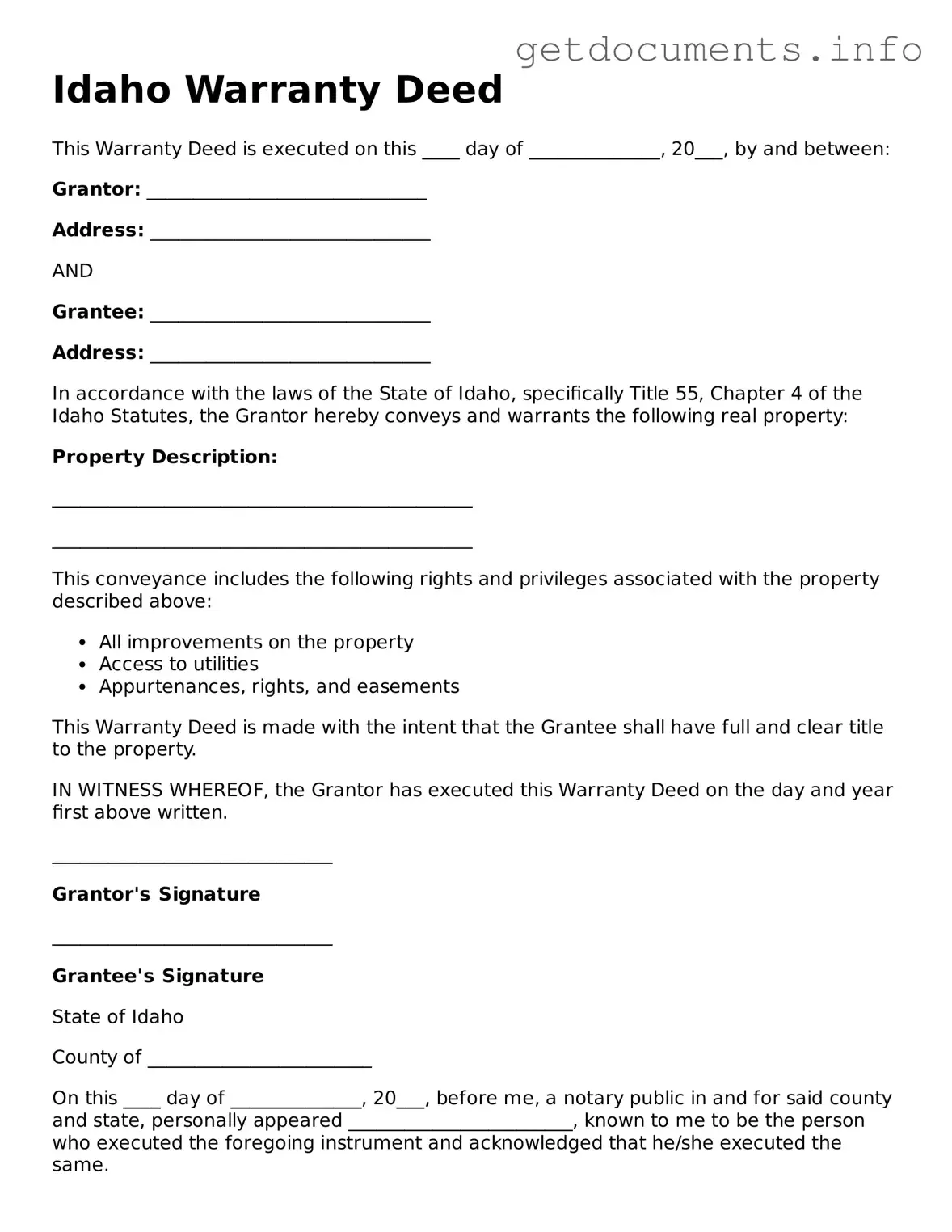Free Deed Template for Idaho
A Deed form in Idaho is a legal document that transfers ownership of real property from one party to another. This essential form outlines the details of the transaction, including the names of the parties involved and a description of the property. To ensure a smooth transfer process, consider filling out the form by clicking the button below.
Access Deed Editor

Free Deed Template for Idaho
Access Deed Editor
Got places to be? Complete the form fast
Fill out Deed online and avoid printing or scanning.
Access Deed Editor
or
⇩ PDF File
